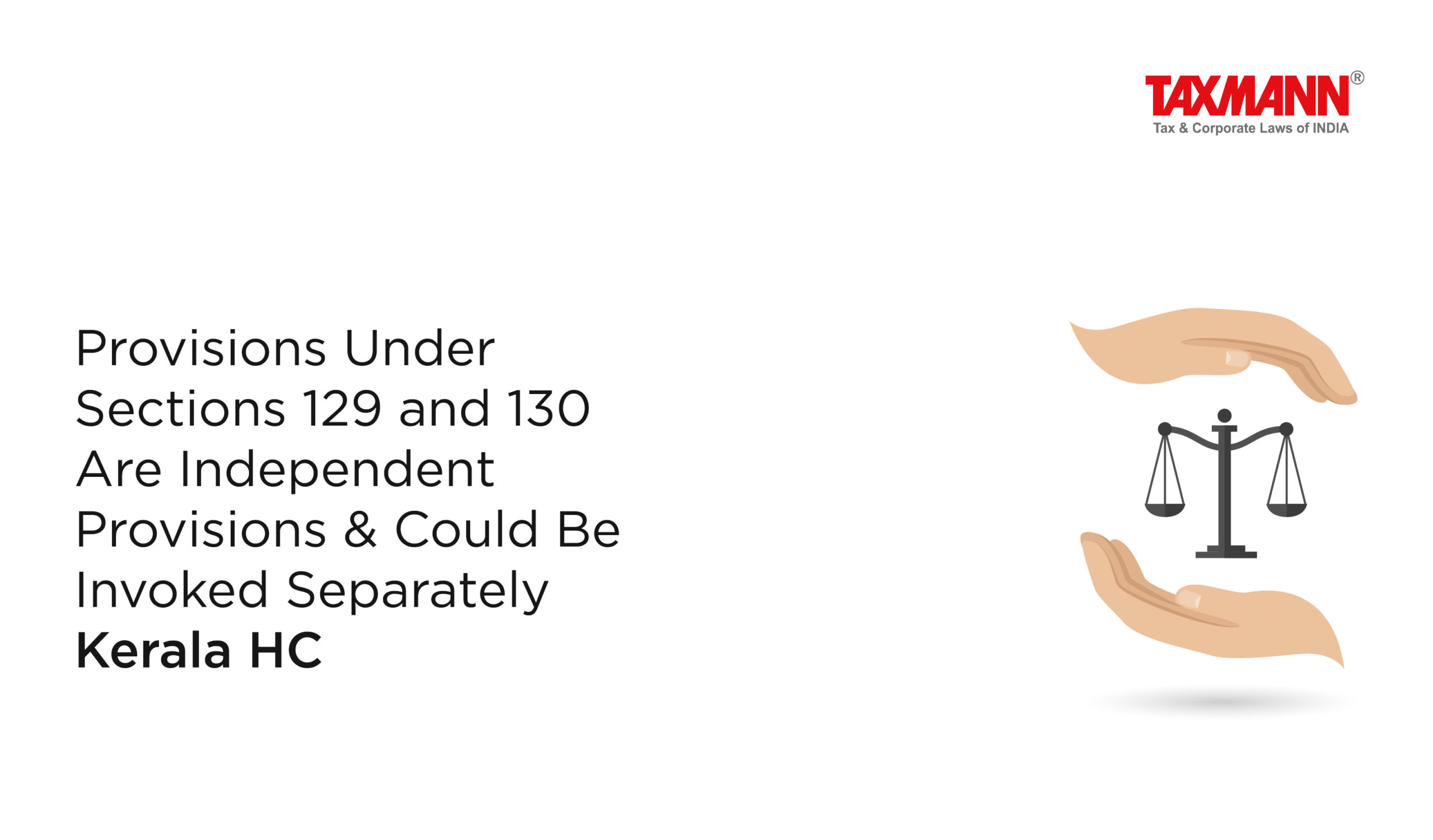Provisions Under Sections 129 and 130 Are Independent Provisions & Could Be Invoked Separately | Kerala HC
- Blog|News|GST & Customs|
- 2 Min Read
- By Taxmann
- |
- Last Updated on 28 August, 2023

Case Details: Muhammad Saleem Shemsudeen v. Enforcement Officer - [2023] 153 taxmann.com 479 (Kerala)
Judiciary and Counsel Details
-
- Dr A.K. Jayasankaran Nambiar & Mohammed Nias C.P., JJ.
- V. Devananda Narasimham, Adv. for the Appellant.
- Smt. M.M. Jasmine, Govt. Pleader for the Respondent.
Facts of the Case
The appellant sold iron scrap to a dealer in Goa and the consignment was intercepted. The Enforcement Officer served notices on driver for physical verification of conveyance, goods and documents. Thereafter, the Enforcement Officer issued report on physical verification of conveyance and immediately issued show cause notice to confiscate goods and conveyance.
The appellant submitted reply but the confiscation order was issued. It filed writ petition and contended that the department was obliged to proceed sequentially through provisions of section 129 before confiscating goods under section 130. The Single Judge directed appellant to file appeal against the confiscation order but the appellant challenged the order before the High Court.
High Court Held
The Honorable High Court noted that the provisions under sections 129 and 130 are independent provisions and there is no requirement in law that confiscation proceedings under section 130 should be preceded by proceedings under section 129. In the present case, the department permitted the appellant to seek a release of the goods and the conveyance on payment of penalties and fine within a period of fourteen days from the date of the order.
Therefore, it was held that the order passed by Enforcement Officer permitting petitioner to seek a release of goods and conveyance on payment of penalties and fine was suffice to obtain an immediate release.
List of Cases Reviewed
-
- Judgment dated 27-7-2023 in W.P. (C) No.24656 of 2023 (para 5) affirmed.
Disclaimer: The content/information published on the website is only for general information of the user and shall not be construed as legal advice. While the Taxmann has exercised reasonable efforts to ensure the veracity of information/content published, Taxmann shall be under no liability in any manner whatsoever for incorrect information, if any.

Taxmann Publications has a dedicated in-house Research & Editorial Team. This team consists of a team of Chartered Accountants, Company Secretaries, and Lawyers. This team works under the guidance and supervision of editor-in-chief Mr Rakesh Bhargava.
The Research and Editorial Team is responsible for developing reliable and accurate content for the readers. The team follows the six-sigma approach to achieve the benchmark of zero error in its publications and research platforms. The team ensures that the following publication guidelines are thoroughly followed while developing the content:
- The statutory material is obtained only from the authorized and reliable sources
- All the latest developments in the judicial and legislative fields are covered
- Prepare the analytical write-ups on current, controversial, and important issues to help the readers to understand the concept and its implications
- Every content published by Taxmann is complete, accurate and lucid
- All evidence-based statements are supported with proper reference to Section, Circular No., Notification No. or citations
- The golden rules of grammar, style and consistency are thoroughly followed
- Font and size that’s easy to read and remain consistent across all imprint and digital publications are applied



 CA | CS | CMA
CA | CS | CMA
